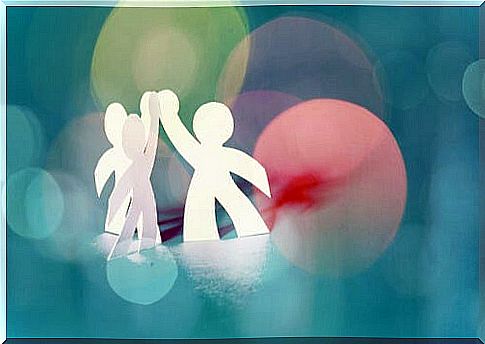The 7 Factors That Affect Your Social Skills

Social skills are strategies to interact with other people in an effective way. They include abilities, skills, and attitudes. We may have been born with a certain disposition to have them, but basically these skills are learned and developed.
It is very frequent that they talk to you about social skills as communication techniques. However, the issue is deeper. To genuinely develop them, you first have to achieve a certain harmony and balance with yourself.
Having social skills is not the same as being outgoing, or having millions of friends and / or followers. These have more to do with your ability to establish and process relationships with others. That is, avoid conflict and promote healthy relationships.
Social skills are so important that a study carried out at Stanford University concluded that they directly affect professional success. This means better jobs, better wages, and a greater sense of well-being. What factors affect those capacities? We will tell you right away.

1. Self-esteem
Self-esteem basically means accepting and valuing ourselves as we are. It does not mean seeing ourselves as better than others or being skilled at imposing ourselves on others. Nor does it mean conformity, or passivity.
What it does imply is the ability to see ourselves as we are and feel basically comfortable with it. Have the feeling that we deserve positive situations in our lives. Easily forgive our mistakes and take care of ourselves. In short, having a good relationship with ourselves.
2. Self-control
Self-control is not the ability to repress our emotions when it is convenient. Rather, it has to do with the ability to manage our emotions, in such a way that we do not harm ourselves or others.
We control ourselves when we voluntarily set limits on our behaviors. We develop mechanisms and strategies to avoid crossing those borders. This is a decisive factor in developing social skills because it places responsibility on ourselves and not on others.
3. Assertiveness, a factor that affects social skills
Assertiveness is a factor closely related to communication skills. It is one of those elements that determine social skills and is the result of learning and practice. We are not born assertive.
It is easier to be assertive when our parents are also assertive and instill it in us with their example. If not, we can still work on how to express our ideas and emotions, managing to be clear, precise and empathetic with others.
4. Conversation
Conversation is one of those moments when social skills come into play. It has to do with the way we exchange information, ideas and feelings. It is strongly linked to assertiveness.
A good conversation is one in which there is a coherent and balanced exchange. It assumes that those involved are talking about something they really want to talk about. That they express themselves and listen to each other, without the desire to impose themselves or prove something to others.
5. Persuasion
Persuasion is the ability to influence the beliefs, behaviors, attitudes, intentions, and motivations of others. It is a complex skill, due to its psychological and ethical implications. It is characteristic of leaders.
Healthy persuasion is based on agreed commitment, moral authority, and reciprocity. I accept what you say because you have grounds to say it, you don’t lie to me and you believe in me too. I agree to do what you suggest because you set an example and I can trust you.

6. Empathy
Empathy is one of the axes of social skills. It has to do with the ability to perceive the feelings of others and respect them. There is no way to have good relationships with others without a high dose of empathy.
An interesting aspect is that someone who is genuinely empathetic contributes to making those around them also empathic. Someone who has this capacity is very valuable in their environment, since it greatly facilitates that diversity is recognized, valued and respected.
7. Presence
Presence is related to the way others feel when they are with you. Or, in other words, how you make others feel. It is what we colloquially call good or bad “vibes”.
There are people who exhaust you in two minutes and others, in front of whom you feel serenity and harmony. That factor of presence depends on the attitude you have towards others. Of the conscious and unconscious expectations and demands in front of the other.
Working to improve our social skills is worth it, because whenever they increase, they also raise our quality of life. More than looking at the relationship with others, the fundamental thing is to look within and observe. Which of the factors should we reinforce to have better social ties? That is the question.









